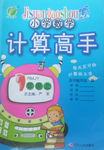题目内容
【题目】阅读下面句子,在空白处填入适当的内容(每空一词)。
【1】It will take several months for Simon to__________ (痊愈) from the knee injuries.
【2】Miller is __________ (可以信赖的) and won’t let you down.
【3】The kids watched as the coin ___________(下沉) to the bottom of the pool.
【4】The old man was living alone, ___________(乞讨)food from neighbours.
【5】Christmas trees were __________ (装饰)with colorful lights.
【6】Our parents give us food and clothing and ask for nothing __________ __________ (作为回报).
【7】Mother treats me __________ __________ (好像)I were a baby.
【8】Finally , Bob__________ __________ with(想出)a good idea to solve the problem .
【答案】
【1】recover
【2】reliable / dependable
【3】sank/sunk
【4】begging
【5】decorated
【6】in return
【7】as if / as though
【8】came up
【解析】
【1】考查动词。该词位于动词不定式符号to之后,故用“痊愈”的动词原形:recover.
【2】考查形容词。该空为形容词作表语,故填“可以信赖的”:reliable / dependable.
【3】考查谓语。根据watched可知,该空应用动词“下沉”的过去式:sank/sunk.
【4】考查非谓语。分析句式可知,beg要非谓语化作状语,因为beg与其逻辑主语(句子主语The old man)为主动关系,故正确答案为begging.
【5】考查动词。Decorate A with B:用B来装饰A.故该空应填decorated.
【6】考查介词短语。“作为回报”:in return.
【7】考查连词。“仿佛;好像”:as if / as though.
【8】考查动词短语。“提出;想出”:sb come up with sth./ sth come up.故该题正确答案为came up.

 计算高手系列答案
计算高手系列答案【题目】任务型阅读
请认真阅读下列短文,并根据所读内容在文章后表格中的空格里填入一个最恰当的单词。
注意:请将答案写在答题卡上相应题号的横线上。每个空格只填1个单词。
Simon Sinek is naturally shy and doesn’t like speaking to crowds. At parties, he says he hides alone in the corner or doesn’t even show up in the first place. He prefers the latter. Yet, with some 22 million video views under his belt, the optimistic ethnographer also happens to be the third most-watched TED Talks presenter of all time.
Sinek’s unlikely success as both an inspirational speaker and a bestselling author isn’t just dumb luck. It’s the result of fears faced and erased, trial and error and tireless practice, on and off stage. Here are his secrets for delivering speeches that inspire, inform and entertain.
Don’t talk right away.
Sinek says you should never talk as you walk out on stage. “A lot of people start talking right away, and it’s out of nerves,” Sinek says. “That communicates a little bit of insecurity and fear.”
Instead, quietly walk out on stage. Then take a deep breath, find your place, wait a few seconds and begin. “I know it sounds long and tedious and it feels excruciatingly awkward when you do it,” Sinek says, “but it shows the audience you’re totally confident and in charge of the situation.”
Show up to give, not to take.
Often people give presentations to sell products or ideas, to get people to follow them on social media, buy their books or even just to like them. Sinek calls these kinds of speakers “takers,” and he says audiences can see through these people right away. And, when they do, they disengage.
“We are highly social animals,” says Sinek. “Even at a distance on stage, we can tell if you’re a giver or a taker, and people are more likely to trust a giver — a speaker that gives them value, that teaches them something new, that inspires them — than a taker.”
Speak unusually slowly.
When you get nervous, it’s not just your heart beat that quickens. Your words also tend to speed up. Luckily Sinek says audiences are more patient and forgiving than we know.
“They want you to succeed up there, but the more you rush, the more you turn them off,” he says. “If you just go quiet for a moment and take a long, deep breath, they’ll wait for you. It’s kind of amazing.”
Turn nervousness into excitement.
Sinek learned this trick from watching the Olympics. A few years ago he noticed that reporters interviewing Olympic athletes before and after competing were all asking the same question. “Were you nervous?” And all of the athletes gave the same answer: “No, I was excited.” These competitors were taking the body’s signs of nervousness — clammy hands, pounding heart and tense nerves — and reinterpreting them as side effects of excitement and exhilaration.
When you’re up on stage you will likely go through the same thing. That’s when Sinek says you should say to yourself out loud, “I’m not nervous, I’m excited!”
Say thank you when you’re done.
Applause is a gift, and when you receive a gift, it’s only right to express how grateful you are for it. This is why Sinek always closes out his presentations with these two simple yet powerful words: thank you.
“They gave you their time, and they’re giving you their applause.” Says Sinek. “That’s a gift, and you have to be grateful.”
Passage outline | Supporting details |
【1】to Simon Sinek | ●He is by【2】shy and dislikes making speeches in public. |
Tips on delivering speeches | ●Avoid talking【4】for it indicates you’re nervous. |
●Try to be a giver rather than a taker because in【6】with a taker, a giver can get more popular and accepted. | |
●Speak a bit slowly just to help you stay calm. | |
●Switch nervousness to excitement by【9】the example of Olympic athletes. | |
●Express your【10】to the audience for their time and applause to conclude your speech. |